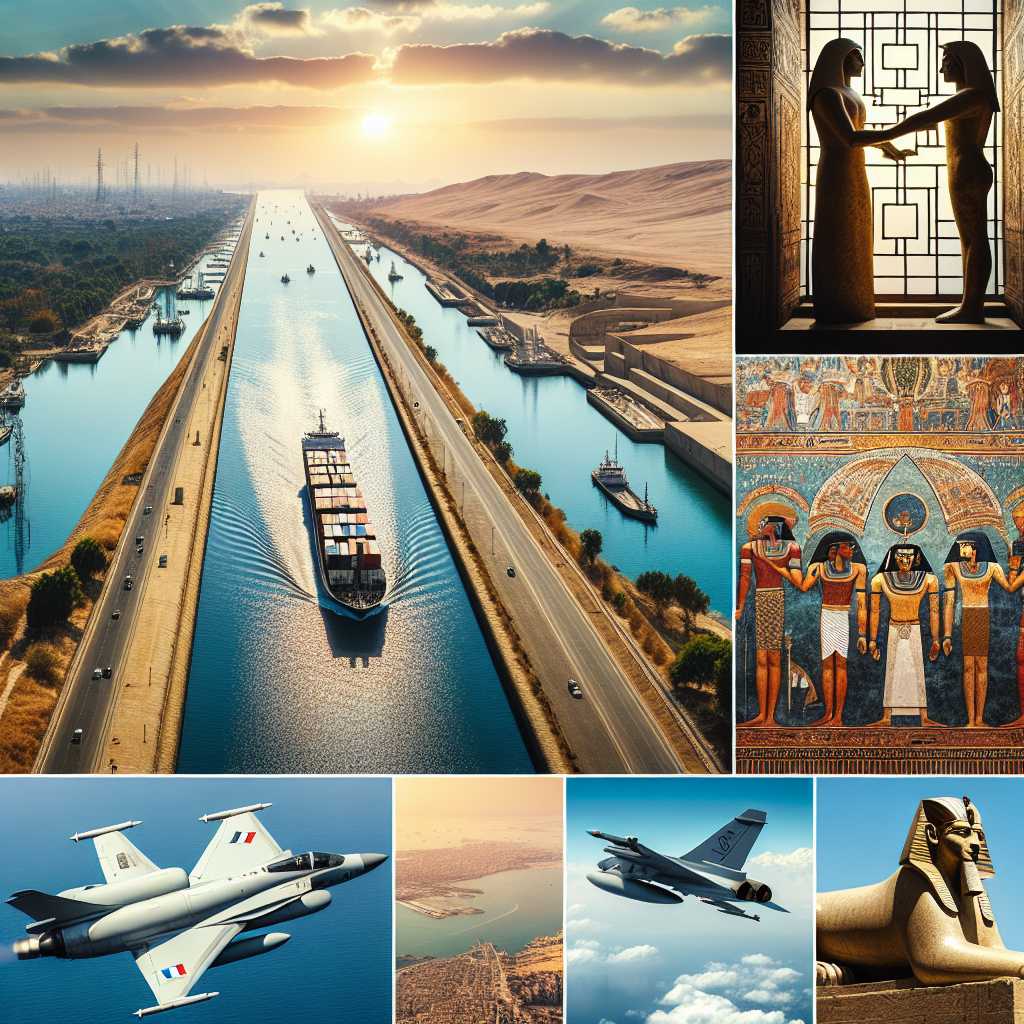Understanding the Historical and Contemporary Relations Between France and Egypt
France and Egypt have a multifaceted relationship spanning centuries, characterized by periods of collaboration, cultural exchange, and conflict. The nuanced nature of this international dynamic shapes diplomatic, economic, and cultural ties between the two nations.
Historical Interactions Between France and Egypt
The history of French-Egyptian interactions is rich, with some of the most notable events dating back to the late 18th century. The relationship was fundamentally altered by Napoleon Bonaparte’s Egyptian Campaign in 1798, which marked the beginning of deeper European involvement in Egyptian affairs. This military expedition had a significant impact on Egypt’s trajectory and also brought to light the wealth of Egyptian history and culture to Europe, sparking a surge in Egyptology.
Another critical historical interaction was the construction of the Suez Canal, a project completed in 1869 with substantial French investment and expertise. The canal remained under joint British and French control until Egypt’s President Gamal Abdel Nasser nationalized it in 1956, triggering the Suez Crisis where France, alongside Britain and Israel, unsuccessfully attempted to regain control over the canal.
Modern Political and Economic Ties
In contemporary times, political relations between France and Egypt are predominantly cooperative but complex. The two countries share mutual interests in maintaining stability in the Middle East and combating terrorism—interests that often align their diplomatic efforts.
Economically, trade between France and Egypt has seen considerable growth. France exports a range of goods and services to Egypt, including machinery, electronic equipment, and pharmaceuticals. In return, Egypt exports products such as textiles, agricultural products, and petrochemicals to France.
Cultural and Educational Exchanges
Cultural relations are bolstered by various institutes and organizations dedicated to promoting mutual understanding through art, education, and literature. The Institut Francais d’Égypte plays a pivotal role in fostering these exchanges by organizing cultural events, language courses, and supporting French archaeological missions in Egypt.
Military Cooperation and Arms Deals
In recent years, military cooperation has intensified with France selling advanced military equipment to Egypt. France has become one of the foremost suppliers of arms to Egypt, which includes the sale of Rafale fighter jets, naval vessels, and surveillance equipment. These dealings have been met with some international criticism over concerns regarding human rights within Egypt.
Discussions on Human Rights Issues
Human rights complaints present challenges in Franco-Egyptian relations. France’s pursuit of closer relations sometimes raises eyebrows among human rights advocates who worry about the Egyptian government’s record on civil liberties and political freedoms.
Enhancement Through Sustainable Development Initiatives
Both nations also engage in discussions revolving around sustainable development. Initiatives focus on renewable energy projects such as solar power alongside cooperation in matters of water resource management – important issues for Egypt’s growing population and economic aspirations.
Tourism: A Flourishing Aspect of Mutual Exchange
Tourism is another active area where both France and Egypt benefit economically from each other. Many French tourists visit Egyptian historical sites annually, while Egyptians show a growing interest in exploring French landmarks, cuisine, fashion, and language.
Notes
Napoleon’s Campaign : Napoleon Bonaparte invaded Egypt in 1798 but his forces were eventually expelled by the British.
Suez Canal : Built by the Universal Company of the Suez Maritime Canal (a French company), it is one of the world’s most heavily used shipping lanes.
Trade Figures : France is one of Egypt’s important trading partners with notable growth in mutual trade witnessed over recent years.
Military Cooperation : France’s sale of military equipment to Egypt has increased substantially despite human rights concerns among international watchdogs.
Cultural Institutes : The Institut Français d’Égypte promotes French language and culture across various Egyptian cities.
*Image Description: An array of photographs depicting facets of French-Egyptian relations. One image shows a serene section of the Suez Canal with modern container ships traversing its waters reflecting both historic significance and current economic relevance. Another photo images a Rafale jet flying above with an emblem indicating its connection to the Egyptian Air Force signifying military cooperation. There might also be snapshots from cultural events showing Egyptian artefacts displayed in a French museum promoting continuous archaeological collaboration.*
